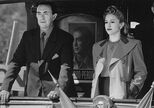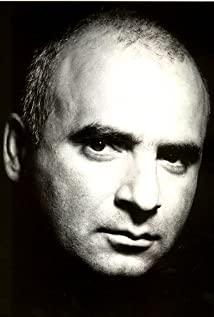★★★☆ (Four stars for full marks) "Mrs. Veron" makes the audience identify with the heroine. The reason why she is great is because she is herself. It celebrates the life of a woman who started out as a would-be prostitute and later married a powerful man, locked him out of her bedroom, and inspired popular idolatry by spending huge sums of money on herself. She was right when she sang: "They need to adore me, that's why I'm covered in Dior." I'm not saying this to comment on the musical, but to bring a bit of realism to the character of Evita Veron, because she's so famous. Her reputation lives on after her death, as her deftly embalmed body continued its long career, being displayed in public, smuggled to Europe, and finally sealed under the steel panels of an Argentine cemetery. Although Evita Veron only lived to be 33 years old, she had such a long curtain call when she left. She is not a recognized heroine for a musical. Andrew Lloyd Webber and Tim Rice must have known this, and they wrote the stage version of Mrs. Veron, whose songs were repeated throughout the film. And why did they have a key character named Che Guevara (called Che in the movie) to ask awkward questions? "Evita, you have failed your people," he sings. She has failed the fascist dictatorship by providing the fascist dictatorship with its apparent prosperity, her secret charitable fund, and her husband's covert protection of Nazi war criminals. for the poor and shirtless. So why were Webb and Rice so right to choose Evita as the heroine? I guess they perfectly predicted Madame Veron's core audience -- rich, middle-aged, and women. The musical celebrates Evita's narcissism, her furs and diamonds, her strict management of her man. Given how attractive she is, what audience would care about ideology? For years, I've wondered, in the song "Don't Cry For Me, Argentina", why don't we cry? Now I get it: We don't need to cry because (a) Evita got everything she dreamed of in life, and (b) Argentina should cry for itself. Even poor Juan Veron deserves a tear or two; in this film he's relegated to a "walker", a decent man in human form fashion adorning the arms of this rich and powerful woman Accessories. All these thoughts didn't stop me from having a good time watching Ellen Parker's Mrs. Veron. I suspect Parker has as many questions about the heroine as I do, and I'm sure Che (Antonio Banderas) and Juan Veron (Jonathan Pryce) ), too—not to mention the film’s co-writer Oliver Stone. Evita alone has overcome these little complaints; if there is one thing the great Evita lacks, it is self-doubt. (For those who have only seen the surface of the film) The film celebrates a legendary woman, and (for those who see it more thoroughly) it is an allegory of a life that was wasted. For this subject, Parker is undoubtedly a good director. He has made more musical films than his contemporaries, not only "Dragon and Snake", "Famous" and "Dream Chaser", especially "Dream Chaser". The Lost Wall, one of the greatest modern musical films, in which he used images of people walking in unison like machines. Using Argentina and Hungary exteriors and detailed interiors, and stepping out of the rhythm of her march to glory with the marching army, he interprets Evita's life as a soap opera version of Triumph of the Will. The film is almost all music; those brief dialogues sound a little awkward. Madonna, who expanded her vocal range by taking vocal lessons, mastered those musical repertoires with ease. Just as importantly, her portrayal of Evita is convincing - from the painful opening scene, when she tries to break into her father's funeral as an illegitimate daughter, to the later scene where the poor rural girl becomes nightclub singers, radio stars, sexual mistresses and political leaders. Madonna's Evita is incomprehensible; what you see isn't what you know. Che's character focuses on this, questioning her motives, doubting her ideals, pointing out contradictions and evasions. For Evita, however, there is no inconsistency, as everything she does is in the service of her image. It is only when you believe that she is serving the poor that you begin to doubt. Listen carefully to her singing: "Because I'm mediocre and insignificant, I don't deserve the attention unless we are all, and I think we are all, so share my glory." In other words, the poor deserve to have AIDS What Vita has, so her plan is, she has it, and then the poor are happy for her. After all, if she didn't have it, she'd be poor too. In other words: the lottery is good, as long as I win. Banderas, who plays Che, sees through this; his performance is one of the film's accomplishments. He sings well, with a majestic air, and he strikes a balance between condemnation and truth. He is "for the people" enough to feel the people's enthusiasm for Evita, and he is also a revolutionary enough to doubt his own feelings. As a dictator, Press is still difficult to fathom. He was very grateful to Evita for the success it brought him. But there's a quiet scene where he knocks on her locked bedroom door, and then moved back to his room, a scene that speaks volumes about the worried look in his eyes. The film's music, like most of the Webb/Rice soundtrack, repeats that brainwashing point. It's as if they came up with a good song and started rehearsing right away. The reason their songs are popular is because by the end of the show, you've heard them a dozen times. But Parker's visuals enliven the music, and Madonna and Banderas bring it to life. At the end of the movie, we feel like we're getting our money's worth, and we're sure Evita does too.
View more about Evita reviews











